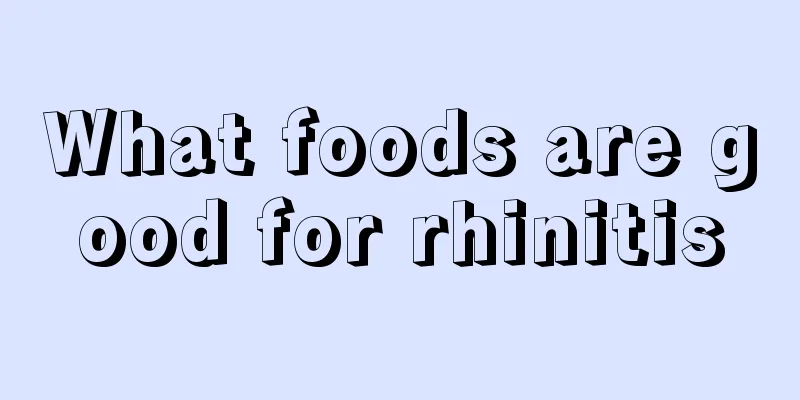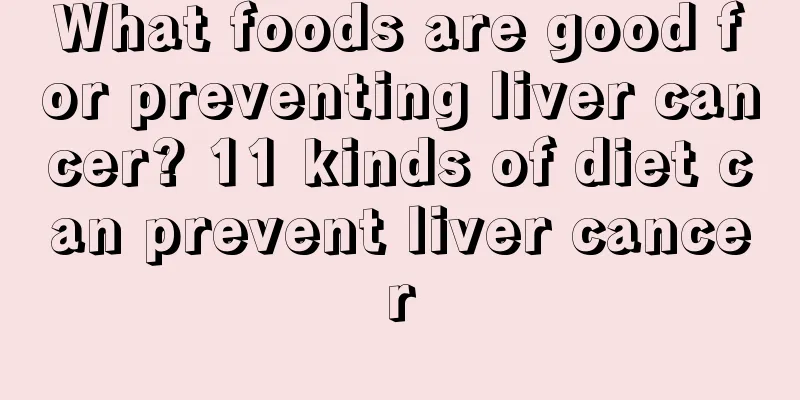What foods are good for rhinitis

|
Patients with rhinitis should eat more foods that help recover from the disease during an attack of rhinitis, so as to effectively reduce the discomfort caused by rhinitis to the body. During the treatment of rhinitis, patients with rhinitis will also find that rhinitis is a disease that is very difficult to cure completely, and the development of rhinitis can only be controlled by medication. Therefore, many other patients will also look for foods that help recover from rhinitis. 1. Pineapple The bromelain contained in pineapple can not only help cold patients relieve sore throat and cough symptoms, but also effectively break down protein in food, increase gastrointestinal motility, and enhance the body's immunity. 2. Citrus: Eating very sour citrus fruits together with honey, or squeezing citrus juice, adding honey and then drinking it with boiling water, is very effective in treating dry nose. 3. Sugarcane: Sugarcane is cold in nature, sweet in taste, and can clear away heat and promote salivation. Sugarcane has the effect of "relieve throat". When you have a sore throat, dry mouth and cough due to a wind-heat cold, eating sugarcane can clear away heat and relieve throat and alleviate symptoms. 4. Pears Pears are cool in nature, sweet in taste, and can promote salivation, clear away heat and resolve phlegm. It has a significant alleviating effect on symptoms such as wind-heat cold, fever, dry mouth, cough and sputum. Patients with wind-heat cold can use a raw pear, wash it, cut it into pieces with the skin, add rock sugar and stew it in water to take orally, which will have a good therapeutic effect. 5. Flammulina velutipes: This is also a food that helps prevent allergic rhinitis. Regular consumption of enoki mushrooms helps eliminate heavy metal ions and toxins and waste produced by metabolism. 6. Carrots Recently, Japanese experts have discovered that beta-carotene in carrots can effectively prevent allergic reactions such as pollen allergies and allergic dermatitis. 7. Honey It is best to drink a spoonful of honey every day. Because honey contains trace amounts of bee venom. It is clinically used to treat allergic diseases such as bronchial asthma. Honey contains a certain amount of pollen grains. Drinking it regularly can develop a certain resistance to pollen allergies. 8. Jujube: Japanese scholars have found that red dates contain a large amount of anti-allergic substances - cyclic adenosine monophosphate, which can only temporarily prevent the occurrence of allergic reactions. It is better to break the jujube into pieces when decocting in water, and it is not advisable to add sugar during the decocting process. |
<<: Can you eat the iron stick yam when it turns purple?
>>: What vitamins are missing for rhinitis
Recommend
What causes urethral pain when urinating?
Some people feel a burning pain in the urethra or...
What disease is it that causes itchy skin when it’s hot in summer?
Many people often feel itchy skin when the weathe...
When is the best time to run for exercise?
There are many kinds of sports for physical exerc...
Late-stage symptoms of nasopharyngeal carcinoma
In the late stage of nasopharyngeal cancer, sympt...
Symptoms and manifestations of lower burner fire
There are many manifestations of body heat, inclu...
What is the formula for toilet cleaner? These are the main ingredients!
Toilet cleaning liquid has different names, such ...
Are teeth inherited?
Some parents who don't have very good teeth w...
What are the effects of white cloud beans
White kidney bean is a dietary fiber plant that i...
Who are the people who are prone to colon cancer
In recent years, colon cancer has become one of t...
What is the cause of gallstones?
Gallstones are a relatively common disease with a...
What are the effects of dialysis on the body
Dialysis is a treatment method. Generally, patien...
What is going on when you see black floating objects?
Nowadays, there are more and more types of electr...
Causes of early teratoma
Teratoma is a tumor covered by a membrane. In the...
Facial allergic rash
The skin on your face is very delicate and is pro...
What to do if your toenails are lifted
There are many reasons for the nail to be lifted ...









